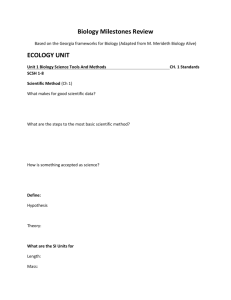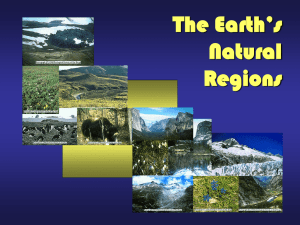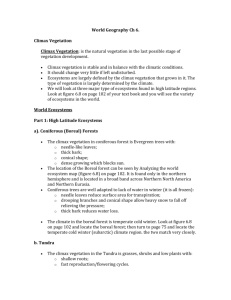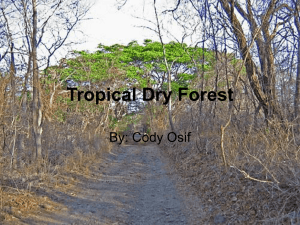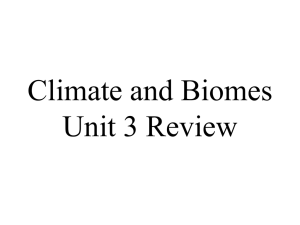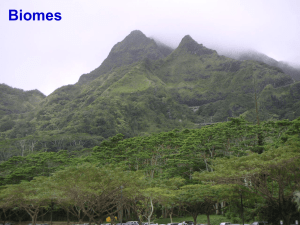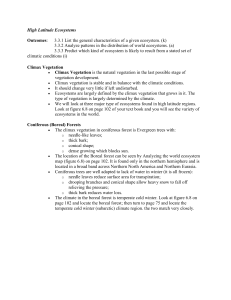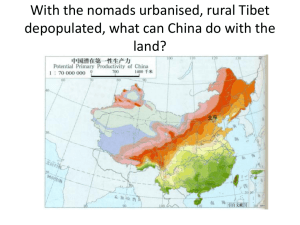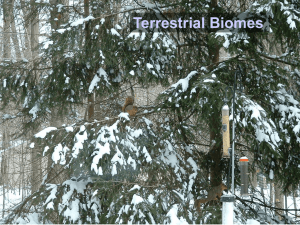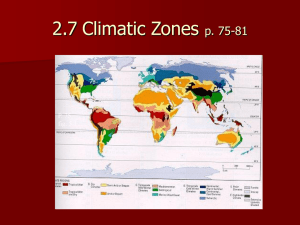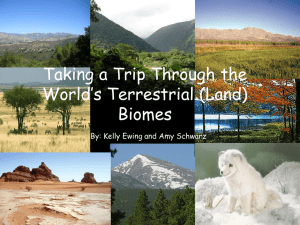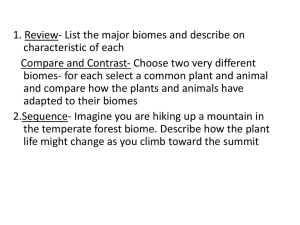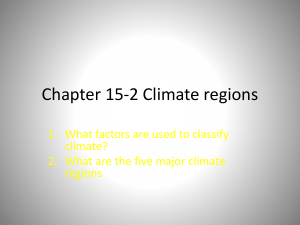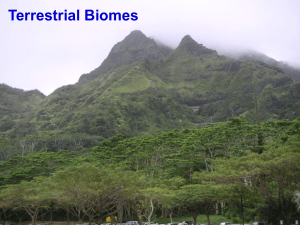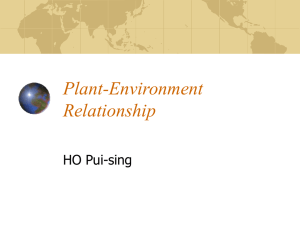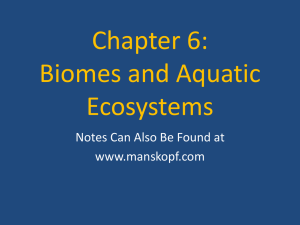3202 Unit 3-3 Ecosystems of the World
advertisement
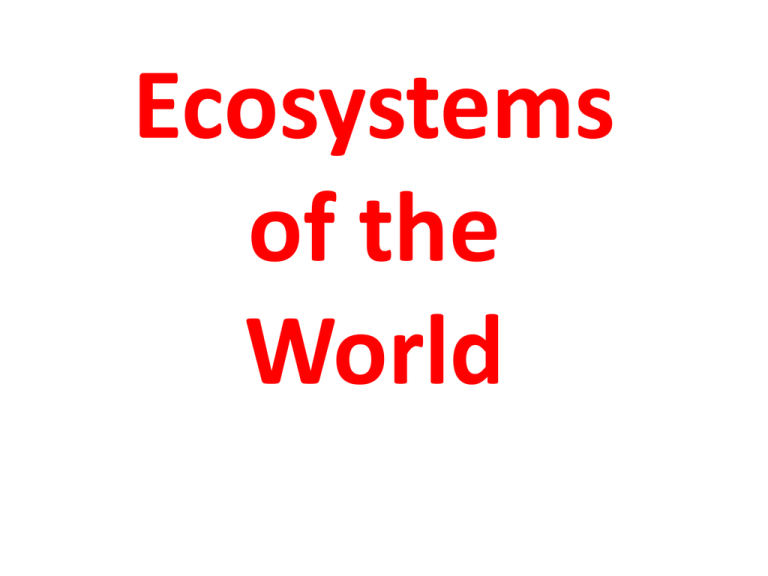
Ecosystems of the World Climax Vegetation - the natural vegetation in the last possible stage of vegetation development. • Climax vegetation is in balance with the climatic conditions. • It should change very little if left undisturbed. Climax vegetation in boreal (coniferous) forest: * Evergreen trees * Needle like leaves * Thick bark * Conical shape * Drooping branches Climate is temperate cold winter – these trees are hardy enough to endure long winters with limited water. * needle leaves reduce surface area meaning less water loss. * thick bark reduces water loss. * drooping branches and conical shape allow heavy snow to fall off relieving the pressure. Complete # 19 on pages 102 – 103. a. Boreal Forest & Tundra are wide spread in high latitudes. b. Tropical Rain Forests occur in low latitudes. c. Tropical Rain Forest is most predominant in South America. d. South America, Africa, Australia and Antarctica do not have tundra. e. Boreal Forest is our ecosystem. Elevation and Latitude Affect Ecosystems • The changes in ecosystems from the equator to the poles is very similar to the changes in ecosystems from the base of a tropical mountain to the summit. Complete # 23 on page 105. A = Temperate Deciduous Forest B = Tropical Rain Forest C = Grasslands D = Savanna E = Tundra F = Coniferous Forest G = Desert Complete # 24 on pages 105 – 106. Ecosystem A = Savanna Ecosystem B = Boreal Forest Ecosystem C = Temperate Forest Ecosystem D = Temperate Grassland Ecosystem E = Tropical Rainforest Ecosystem F = Tundra Ecosystem G = Desert Complete # 25 on page 107. Tropical Rain Forest Answer Answer Answer Ecosystems and Climatic Regions Ecosystems of the world are largely defined by their climax vegetation. Example: tropical rain forest, grasslands, boreal forests, cacti, etc. Climax vegetation is determined by climate. Therefore, ecosystems parallel climate zones. Ecosystems and Climatic Regions Temperate cold winter gives Boreal Forest Temp. mild winter gives Temp. deciduous Forest Semi-Arid gives Grassland Arid gives Desert Tropical Wet gives Tropical Rain Forest ECOSYSTEM Tundra Boreal Forest Temperate Forest Temperate Grassland CLIMATIC CONDITIONS Polar to subarctic climate - short summers - temperature always below 100 C - very cold long winters - light precipitation Temperate cold winter climate - warm summers - moderate precipitation Temperate mild winter climate - mild winters - quite warm to hot summers - moderate to heavy precipitation Steppe to semi-arid climate OR Temperate cold winter (in some cases) - light precipitation usually in summer - warm to hot summer temperatures - cold winters CLIMAX VEGETATION Grasses and shrubs with shallow roots that reproduce quickly Evergreen trees with needle leaves & thick bark that reduce moisture loss Deciduous trees like oak & birch that lose their leaves in fall to reduce moisture loss Grass with shallow roots that require little water ECOSYSTEM CLIMATIC CONDITIONS CLIMAX VEGETATION Savanna Tropical wet/dry to semi-arid climate Grass with shallow roots - high temperatures most of year that require little water - light to moderate precipitation usually during one season Desert Arid climate - high temperatures all year - very light precipitation Plants that are thick, have needles, long roots, and can store water. Tropical Rain Forest Tropical wet climate - high temperatures all year - heavy precipitation most of year Tall evergreen broadleaf trees that have broad roots in thin soil to support height Mountain Varied climate but usually cold due to high elevations - Conditions depend on where mountains are - Quite similar to tundra ecosystem at highest elevations Vegetation varies with elevation and temperature
